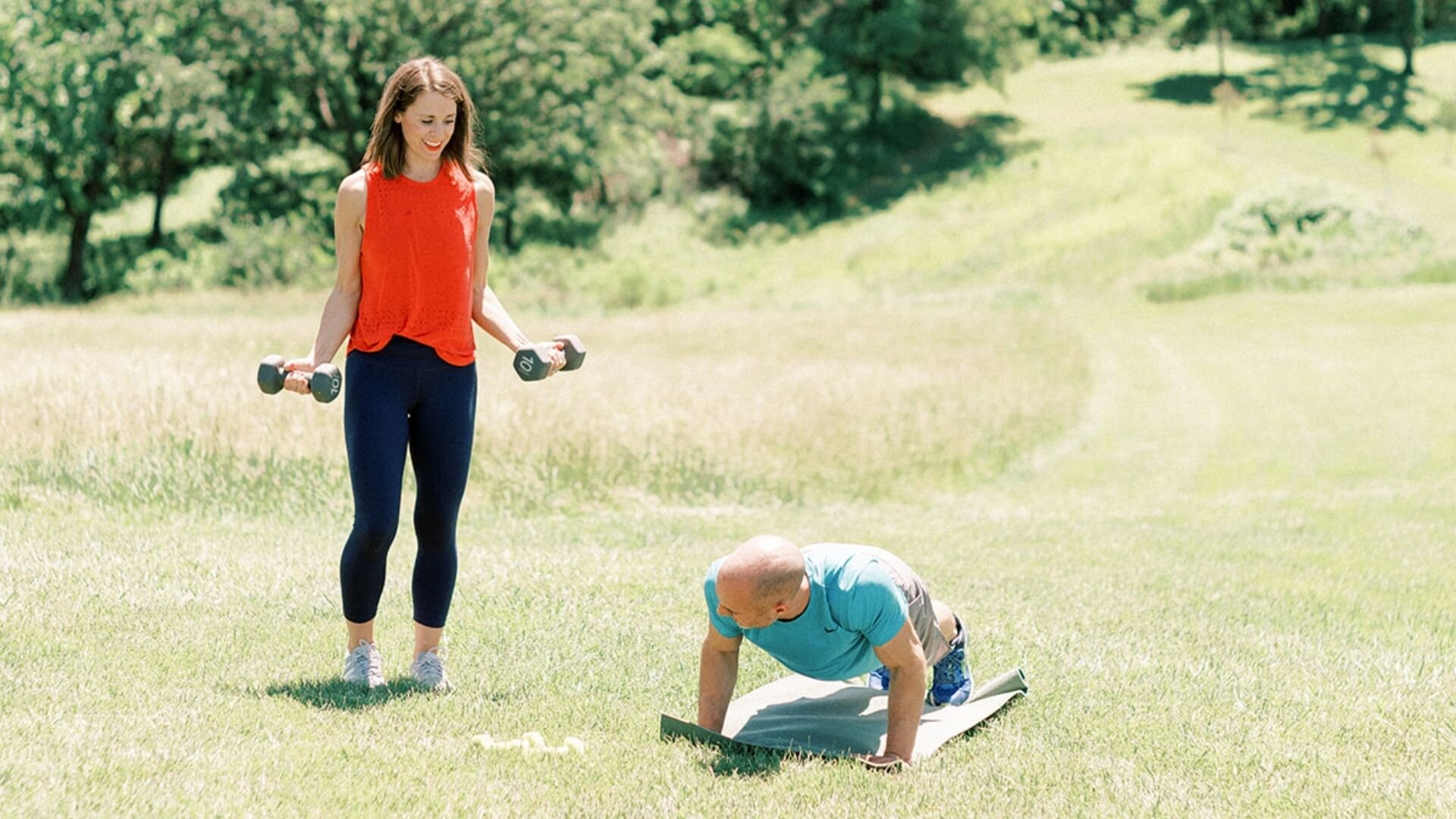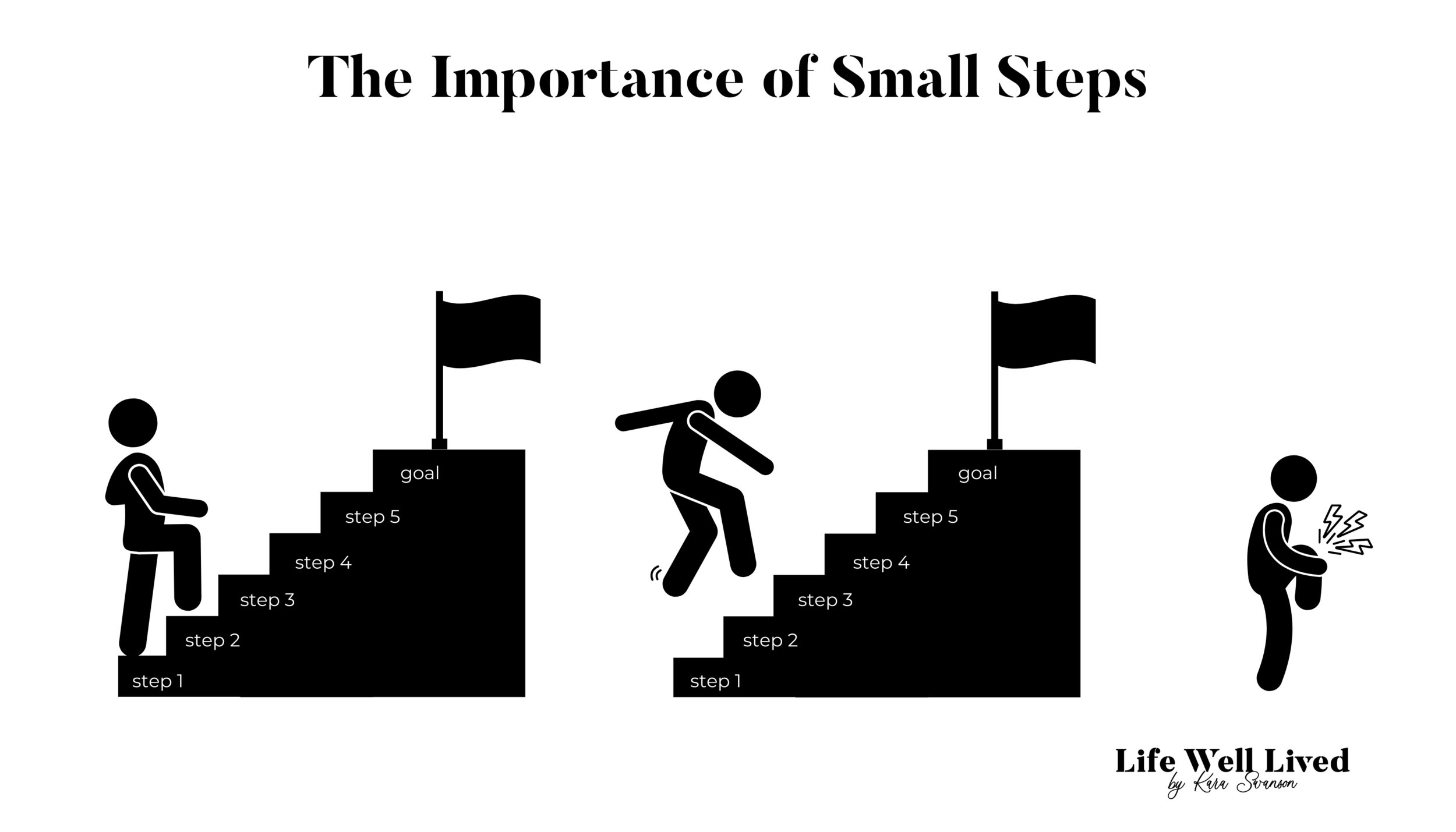How Small Steps Lead to Big Success
We live in a world of microwaves and fast food delivery. When we set our minds to something we want it now. We don’t want to deal with the small steps in between our current state and the goal we have in mind. But today, I’m going to talk about the importance of small steps: how they lead to big success and why it’s important not to skip over the steps in between.
Let me tell you a story to explain. It doesn’t take an avid fan to understand the world of competitive sports is won and lost over marginal adjustments. Until the 2008 Bejing Olympics, the Great Britain cycling team had only won a single Olympic gold medal over the previous one hundred years.
They had become the joke of the cycling world. In fact, certain cycling companies wouldn’t allow the British cycling team to use their bikes for fear of the negative association.
But in 2003 they hired Dave Brailsford to be the new performance director. He committed to one strategy he described as “the aggregation of marginal gains.”
His philosophy was to break every component of cycling down into its most fundamental part, not overlooking or underestimating any aspect. He focussed on the cyclists’ sleep, the way their tires gripped the road, the shorts they wore, and even the color of the inside of the bike trailer.
As a result of these small improvements, the British Cycling team dominated the 2008 Olympic cycling events taking home 60 percent of the gold medals available. And it wasn’t a fluke: four years later, the British cycling team set nine Olympic records and seven world records at the 2012 Olympics in London.
The danger of overlooking steps
Have you ever watched someone try to leap a collection of stairs? It makes me cringe thinking of it because it often results in banged-up shins or worse. It reminds me of one of our early homes. The steps that lead to the top floor were steep. For that reason, Noah would often take them two or three at a time.
That was until one night his foot slipped causing him to somehow land squarely on his right large toe. It was a painful sight to see and much greater to experience. (For the record, I’m sure I was an extremely sympathetic wife.)
I’ll admit, it can be frustrating to see where you are in comparison to where you want to be. And it can be tempting to try to get there as quickly as possible.
As James Clear, author of Atomic Habits notes, “Too often, we convince ourselves that massive success requires massive action.” Instead of taking it one step at a time, we force ourselves into earth-shattering improvement we believe will get us the results we hope for faster.
Success is a few simple disciplines, practiced every day; while failure is simply a few errors in judgment, repeated every day.
—Jim Rohn
Three dangers of skipping steps
But this is a dangerous practice. Skipping the steps in between your current state and your desired state can be dangerous for three reasons:
1. There’s a good chance you’re not ready for step three or four when you’re on the first step.
2. Skipping steps doesn’t allow you to develop the needed discipline to carry you forward. Habits are a fundamental part of success. In this blog post, titled 6 Unorthodox Ways to Motivate Yourself to Workout, I explain this in greater detail.
3. It often leads to frustration and overwhelm.
The benefit of small steps
Improvements may be noticed on a macro level but they happen as the result of miro adjustments. Dave Brailsford, the British cycling coach could have tried to help the team improve by hiring a team of engineers to redesign the team’s bicycles or recruited new athletes. Instead, he focussed on small, incremental changes that lead to massive improvements.
The same can be applied to any goal whether it’s weight loss, raising your children, or climbing the corporate ladder. Take weight loss for example. Almost daily I hear women say they want to “feel better.” Maybe that translates into losing 10 pounds, 20 pounds, or even more.
And what I could do as many trendy diets will suggest, is recommend something radical: eliminate all carbs, drastically cut calories, only eat in a limited window of time.
Instead, I help them implement small habits like improving their sleep, consuming more water, and eating more fiber. While these things may seem small, they add up to great results.
Why do small steps lead to big success?
The reason small steps are more effective than big leaps is that they’re sustainable. A couch potato won’t be successful with a workout routine if they try to commit to exercising sixty minutes a day five times a week.
Why? Because they’re not ready for that yet. You need to take the next step and then the one after that. A person who never exercises shouldn’t try to join the ranks of the gym rats right away. Sure, that can be the goal. But to start they should focus on just adding more movement into their lives.
Three reasons small steps are important
Small steps work for three reasons:
1. They meet you where you are.
2. They prevent discouragement.
3. They’re sustainable.
Conclusion: Don’t overlook the steps in between where you are and where you want to be
Instead of trying to leap from where you are to where you want to be, force yourself to acknowledge the steps in between. Allow yourself to appreciate those steps you will need to climb in order to achieve your goals. Sure, some of those steps you’ll run up, but others will take time. And that’s okay.
Just realize that each of those steps is preparing you for the person you will be when you achieve that goal you have ahead of you.




